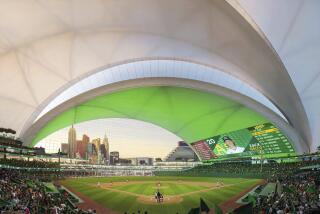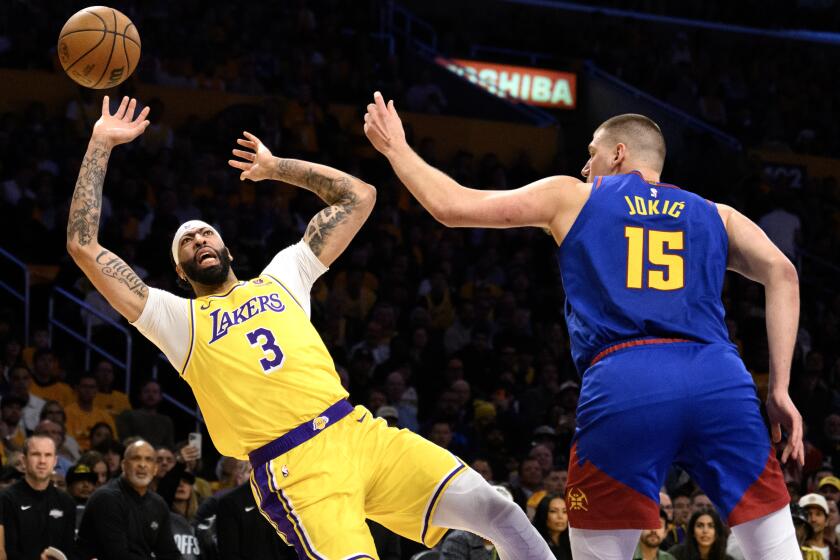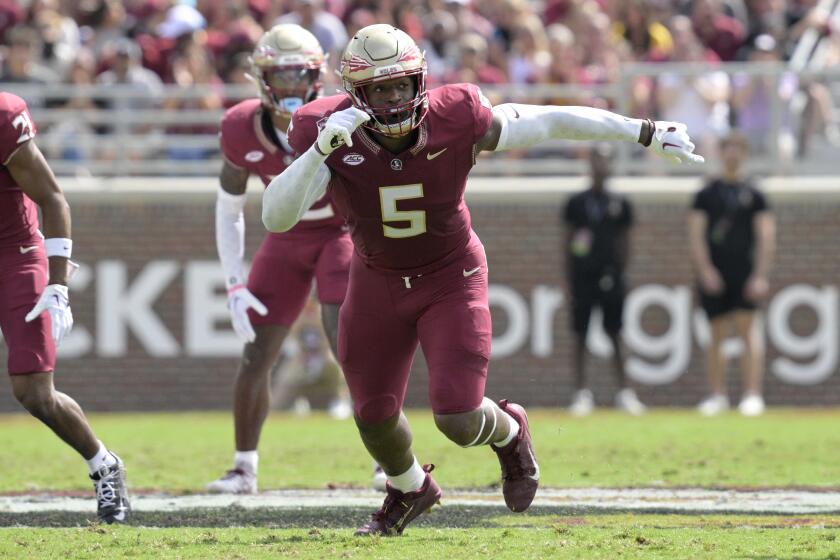Las Vegas arena and city’s NHL bid are rolling along
The building creaks in the quiet of the hot afternoon, an eerie sound that’s entirely normal as its concrete and 7,000 tons of structural steel settle into place within the arena under construction just off the Las Vegas Strip. Soon that creaking will fade, replaced by the sounds of music and cheers at concerts, boxing matches, college basketball games and — if all continues on course — NHL contests.
The $375-million arena, owned by AEG and MGM Resorts International and operated by MGM, reached a significant milestone last Wednesday when concrete was poured to form the event floor. A few weeks earlier, the NHL acknowledged that a Las Vegas group’s application for an expansion team had advanced to the third phase, which means the league will review the business plans of the company led by Bill Foley. (Read more here).
A group hoping to bring the NHL back to Quebec City, Canada, has reached the same stage, a prelude to bringing the expansion to a vote by the league’s Board of Governors. That could happen later this month or in January. The two franchises could join the league for the 2017-18 season, which would create an interesting contrast between Quebec’s standing as a traditional hockey market and the unknown of bringing the first major professional sports team to Las Vegas. The price of an expansion franchise could be as high as $500 million.
The Las Vegas arena is projected to open next spring with a series of events, and it appeared well on track to meeting that deadline when I toured it this week. (A time-lapse video of construction can be viewed here).
It will have a naming-rights partner within 45 to 60 days and up to 10 founding partners, according to Mark Faber, senior vice president of global partnerships for AEG. The company owns Staples Center, StubHub Center and the Kings and also owns or operates an array of other teams and facilities around the world.
The arena, adjacent to a two-acre outdoor plaza, will host as many as 140 events a year if the NHL awards a franchise to Foley’s group. College basketball, concerts, boxing/UFC and awards shows also will fill the venue, and the Lakers and Kings will play exhibition games there.
“We will bid for NHL and NBA All-Star games,” Faber said, noting that there are 32,000 hotel rooms nearby to handle crowds for major events.
The arena will include eight “bunker” suites among its 50 suites as well as club seating, two chairman’s clubs, tiered loge seats and a party deck. The majority of the suites will be on one level, unlike the three-level design at Staples Center, which means the arena will be less cavernous than Staples Center.
According to Shaun Kriedeman, the project field manager, it will be 112 feet from the event level to the lowest steel. That distance is 150 feet at Staples Center. The Las Vegas arena’s square footage is listed at 650,000 square feet and Staples Center at 950,000.
About 40% of the seating capacity will be in the upper level, and a trip to the top presented good sightlines at every vantage point. Capacity will be 17,500 for hockey and 18,800 for basketball, with the potential to add seats for concerts and other events. A season-ticket campaign for a prospective NHL team has exceeded 13,000 commitments. The home locker room was recently framed, and the arena’s overall features were built to NHL and NBA standards.
Despite its bare walls, debris-covered floors and dark stairwells, it was easy to envision the arena’s potential for a good fan experience that will be heavy on luxury for high rollers but won’t exclude single-game ticket buyers.
The oval, sloping shape is striking — Kriedeman said there’s not a straight wall in the design — and there will be balconies, wide concourses, lots of restrooms and 45 concession areas and concession carts. A huge glass wall looks out to the faux New York skyline of the New York-New York hotel and casino and the Strip.
In addition to premium seating, amenities include two VIP drop-off areas and a ramp to the suite level from a nearby parking garage. There will be 30 doors overall but one main entrance from which visitors will walk down to the event level.
Selling hockey in Las Vegas will present challenges in a city built on gambling and lofty dreams, especially after the novelty of a new franchise wears off, and other professional sports leagues are sure to monitor this venture closely. Las Vegas has always been good at reinventing itself, and transforming itself into a hockey city might be its boldest experiment yet.
More to Read
Get our high school sports newsletter
Prep Rally is devoted to the SoCal high school sports experience, bringing you scores, stories and a behind-the-scenes look at what makes prep sports so popular.
You may occasionally receive promotional content from the Los Angeles Times.






